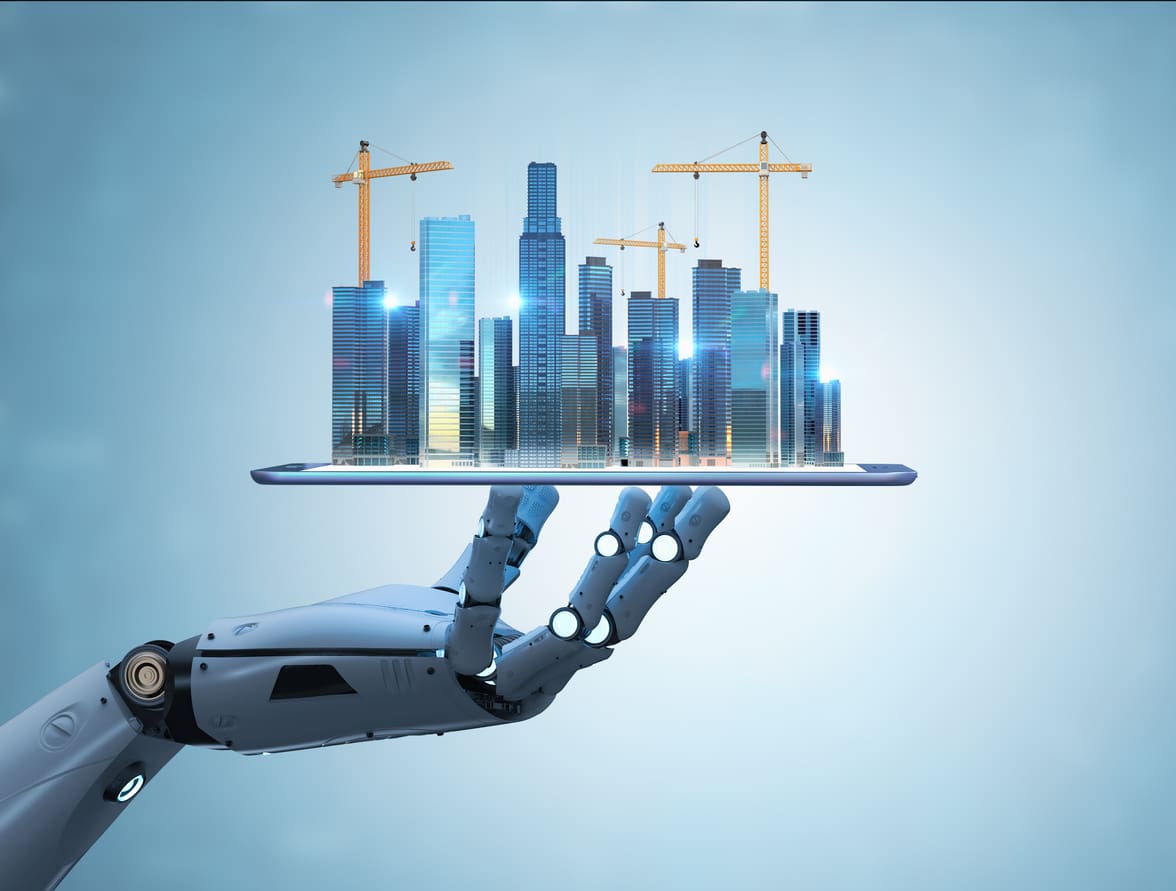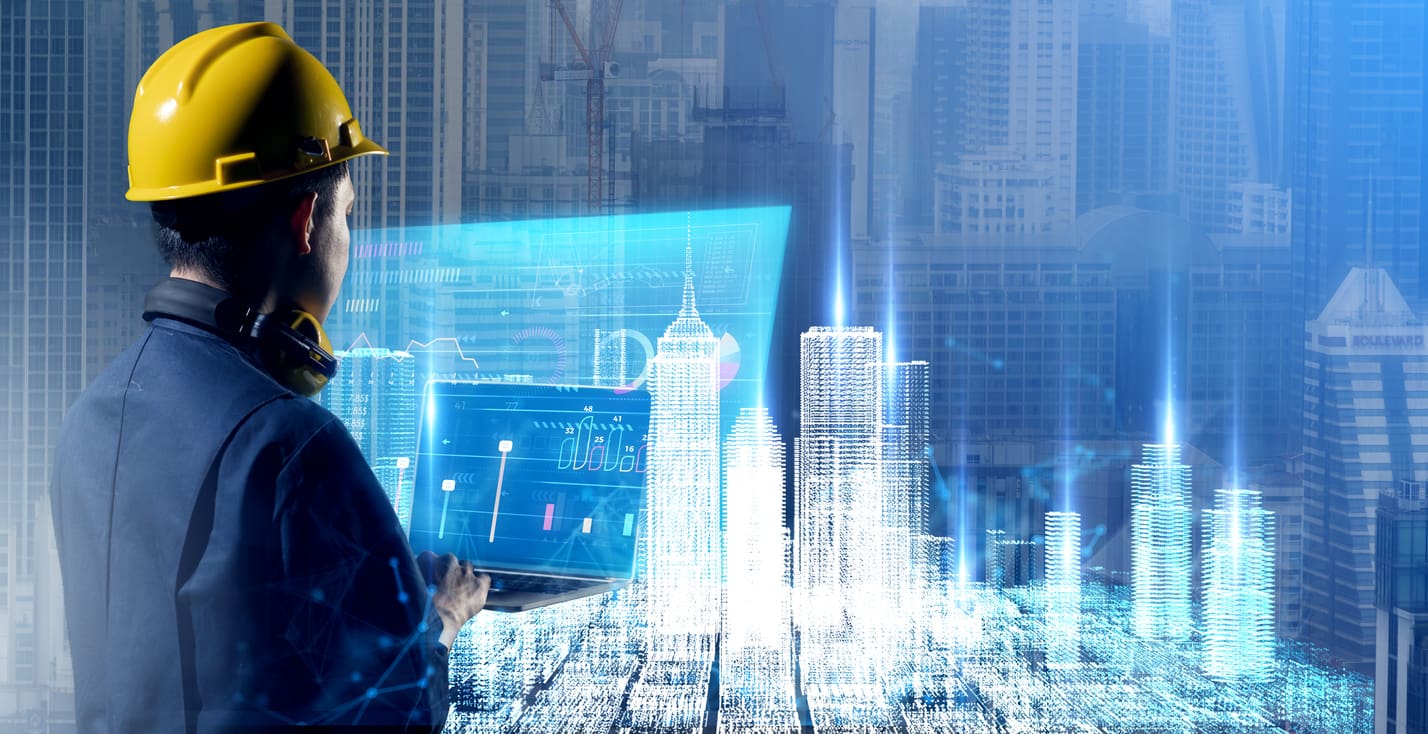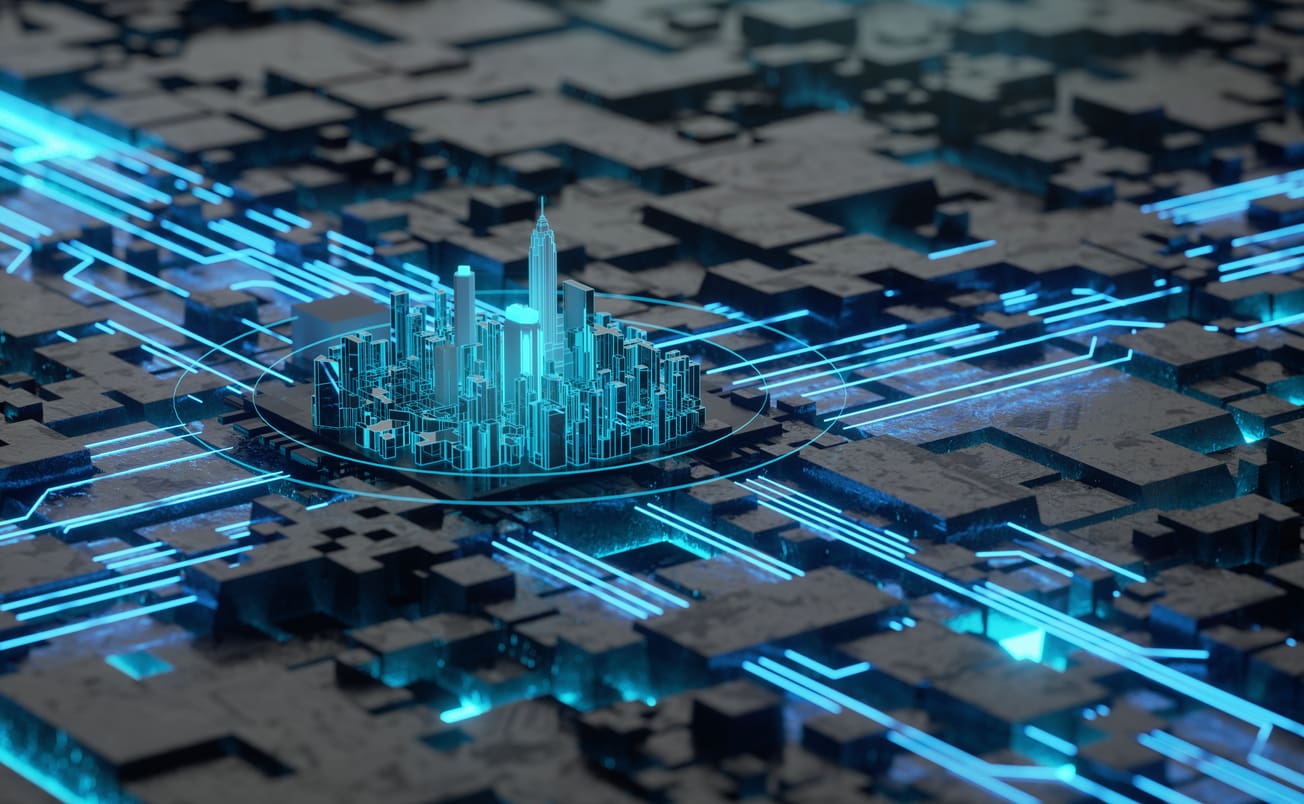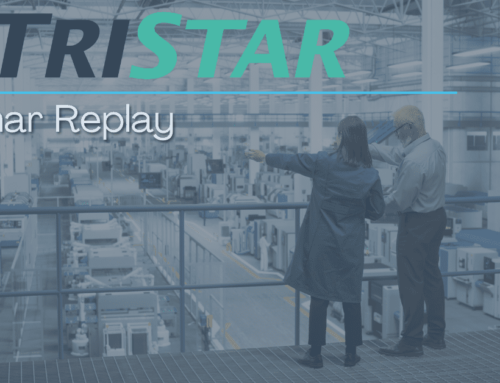February 7, 2024
AI in Architecture: Revolutionizing Design and Construction
READ TIME: 4.7 MINS
AI in Architecture: Revolutionizing Design and Construction
AI in Architecture is rapidly evolving in the world of architecture, the integration of Artificial Intelligence (AI) is not just an innovation but a revolution that is reshaping the very fabric of design and construction. As we delve into the realms of AI in architecture, we uncover the myriad ways this technology is enhancing efficiency, creativity, and sustainability in the industry. This blog post explores the transformative impact of AI on architecture, highlighting its applications, benefits, and the future it promises for the built environment.

Revolutionizing Design Processes with AI
AI is making significant strides in architectural design by offering tools that streamline and enhance the design process. Algorithms powered by AI can analyze vast amounts of data, including site conditions, climate trends, and historical usage patterns, to suggest optimal designs that balance aesthetic appeal with functional efficiency. These AI-driven tools enable architects to explore a wider array of design alternatives in a fraction of the time it would take manually, fostering innovation and creativity in architectural solutions.
The Impact of AI on Architectural Design
AI is transforming architectural design by introducing new methodologies and tools that enhance creativity and efficiency. Here are some key takeaways AI is making in its impacts:
Automated Design Assistance: AI algorithms assist in generating design options based on specific parameters, allowing architects to explore a broader range of possibilities.
Data-Driven Decision Making: By analyzing large datasets, AI helps architects make informed decisions about materials, structures, and environmental impact, leading to smarter designs.
Virtual Reality (VR) and Augmented Reality (AR): AI-powered VR and AR tools enable architects and clients to visualize and interact with design concepts in real time, improving understanding and collaboration.

Transforming Construction through AI
The impact of AI extends into the construction phase, where it is revolutionizing traditional practices. AI-powered robots and drones are being utilized on construction sites for tasks ranging from surveying to bricklaying, increasing safety and productivity. Additionally, AI is improving project management through predictive analytics, which helps in anticipating potential delays and optimizing resource allocation, keeping projects on schedule and within budget.
Automated Design Assistance: AI algorithms assist in generating design options based on specific parameters, allowing architects to explore a broader range of possibilities.
Data-Driven Decision Making: By analyzing large datasets, AI helps architects make informed decisions about materials, structures, and environmental impact, leading to smarter designs.
Virtual Reality (VR) and Augmented Reality (AR): AI-powered VR and AR tools enable architects and clients to visualize and interact with design concepts in real time, improving understanding and collaboration.
Streamlining Construction with AI
The construction phase benefits immensely from AI, streamlining processes and improving safety and efficiency:
Project Management Optimization: AI algorithms predict project delays, optimize schedules, and manage resources efficiently, ensuring projects stay on track.
Safety Enhancement: Through constant monitoring and predictive analytics, AI tools can identify potential safety hazards, reducing the risk of accidents on-site.
Automation and Robotics: AI-driven robots perform repetitive or dangerous tasks, from bricklaying to structural inspections, enhancing productivity and safety.

AI in Architecture: Sustainable and Smart Solutions
Sustainability is a cornerstone of contemporary architecture, and AI is playing a pivotal role in promoting eco-friendly design practices. By analyzing environmental data and simulating building performance, AI enables architects to make informed decisions that enhance energy efficiency, reduce waste, and minimize the carbon footprint of buildings. Furthermore, AI is instrumental in developing smart buildings that adapt to their occupants’ needs, optimizing comfort while conserving resources.
Sustainability and AI in Architecture
By harnessing the power of AI, architects, and engineers are now able to create buildings that are not just aesthetically pleasing but also environmentally friendly and energy-efficient. Sustainability is a crucial concern in modern architecture, and AI is at the forefront of eco-friendly design:
Energy Efficiency: AI tools analyze climate data and building usage patterns to design structures that optimize energy use, reducing the carbon footprint.
Resource Management: Through predictive analysis, AI helps in selecting sustainable materials and minimizing waste during construction.

AI in Architecture – Looking Ahead
While the integration of AI in architecture offers numerous benefits, it also poses challenges such as the need for significant investment in technology and training, as well as concerns about data privacy and job displacement. Addressing these challenges requires a balanced approach, focusing on upskilling the workforce and establishing clear ethical guidelines for using AI in architecture.
AI in Architecture – Challenges and Opportunities
While AI in architecture promises many benefits, it also presents challenges that need to be observed:
Cost of Implementation: The initial investment in AI technology can be high, but the long-term savings and benefits often justify the expense.
Training and Adaptation: Professionals need to adapt to new tools and methodologies requiring ongoing education and training.
The Future of AI in Architecture
Looking ahead, AI in architecture promises to further enhance design creativity, construction efficiency, and sustainability:
Generative Design: More advanced AI will enable architects to create more complex, adaptive designs that respond to changing environmental and human needs.
Smart Cities: AI will play a pivotal role in designing cities that are more livable, efficient, and sustainable, optimizing everything from traffic flow to energy use.

AI in Architecture – Summary
In conclusion, the future of AI in architecture is bright, with ongoing advancements promising even more innovative applications. From generative design algorithms that push the boundaries of creativity to AI-driven urban planning tools that foster sustainable and livable cities, the possibilities are endless. As the architecture industry continues to embrace AI, it is set to redefine the built environment, making it more efficient, sustainable, and responsive to human needs.
AI in architecture is not just a passing trend but a transformative force that is shaping the future of the industry. By harnessing the power of AI, architects, and builders can unlock new levels of creativity, efficiency, and sustainability.
If you are interested and want to take a look at Creo as your AI in Architecture Partner. Consider this great CAD software to use!
Links to Other Pages
- IoT Remote Monitoring – Guide to Improve Performance: This guide explains how IoT remote monitoring improves performance with real-time data insights and efficient resource management.
- AI CAD Design Revolutionizes Digital Engineering: See how AI CAD design transforms digital engineering creativity and product development cycles.
- PLM Architecture and Services: Learn about PLM architecture and services that facilitate integration and collaboration throughout the product lifecycle.
- AIoT Platform – Accelerate Digital Transformation: Understand how the AIoT platform accelerates digital transformation by combining artificial intelligence with the Internet of Things for operational efficiency.
- Generative Design Algorithms for Product Development: Consider generative design algorithms that optimize product development with many design possibilities and solutions.
TriStar Digital Thread Solutions welcomes questions. Feel free to CONTACT US if you can’t find what you’re looking for, or call us at 800-800-1714









Leave A Comment